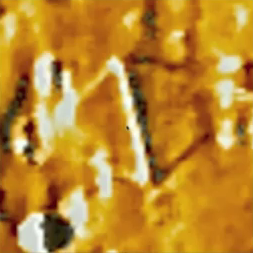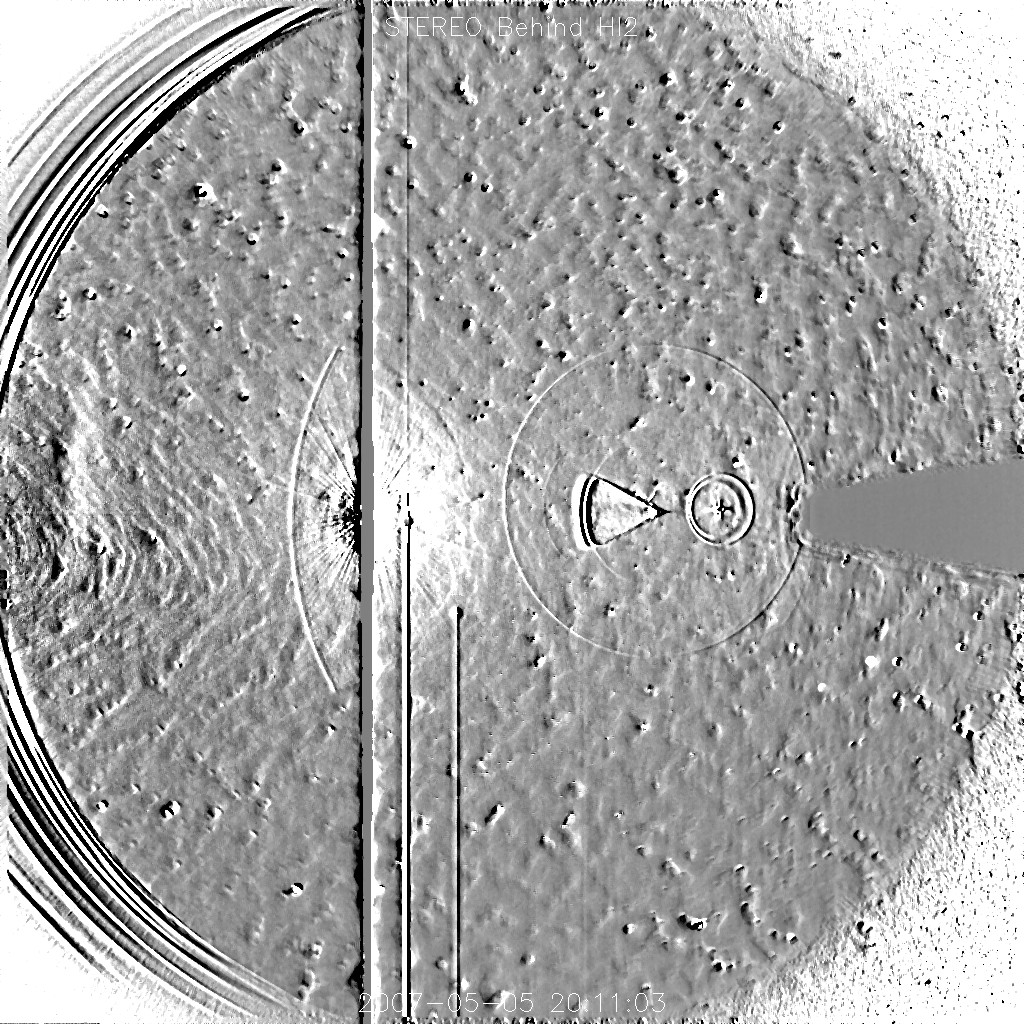NASA Debunks Mysterious Triangular 'UFO'

Once again, alien conspiracy theorists have attempted to use publicly available NASA images to prove that the space agency must be engaging in an elaborate UFO cover-up. And, once again, they've been foiled by the laws of physics.
This time, they called attention to peculiar new footage captured by a telescope onboard NASA's STEREO-B spacecraft — one of a pair of probes parked on either side of the sun which, together, provide a 360-degree view of the inner solar system. The footage shows Venus, Earth and, on the opposite side of the field-of-view, a mysterious triangular object headed our way.
"Comparing it for size to the planetary objects that are seen in this telescope, if my calculations are correct, that thing is enormous," said YouTube user "BeePeeOilDisaster" in his video commentary on the footage, which was captured Dec. 27 -29. Talk of a cover-up quickly followed when, a few days later, NASA scientists updated the STEREO website to display newer images.
This is not the first time alien hunters have found what they believe to be enormous UFOs in images captured by the STEREO probes. [Mysterious Planet-Size Object Spotted Near Mercury]
But this time, the team of scientists who work with data from the probes decided to address the claim directly. In a post on the STEREO website, the researchers offered up an explanation of the triangular feature in the December footage. The researchers say it's no more than a trick of the light.
"The answer lies on the exact opposite side of the image," the scientists wrote. "At the same time as this strange-looking feature starts being visible, the very bright planet Venus enters the [telescopic camera's] field-of-view from the lower left."
The scientists note that Venus and the triangle, opposite each other across the middle of the camera plane, stay in step as they move. "This is not a coincidence. The strange-looking geometrical 'object' is actually an internal reflection of the planet Venus within the telescope optics. This effect has been seen many times before."
Sign up for the Live Science daily newsletter now
Get the world’s most fascinating discoveries delivered straight to your inbox.
In this optical effect, incoming light reflects back and forth off lenses and mirrors inside the telescope; the shape of artifacts produced by this scattered light — usually triangles and circles of various sizes — depends on the relative orientations of those lenses and mirrors.

Another example of internal reflection, this time of light from planet Earth, can be seen in a STEREO-B image from May 2007. More examples of internal reflection and other optical and data-processing artifacts are displayed on the scientists' "Image Artifacts" Web page, along with explanations of the various effects.
Follow Life's Little Mysteries on Twitter @llmysteries, then join us on Facebook.










